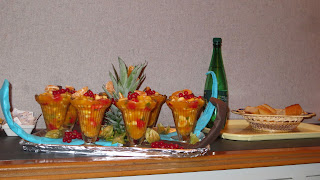want to share some thoughts on the French system of education.I teach a regular course to the University of Artois to students three days a week and besides this many lectures are arranged outside the University. I have been interacting so much with students of different levels here in France in Arras, in Paris that I am very impressed with their approach towards education. When I go for a public lecture to any College, I find a mix of students from age 10 to 35 and sometimes even 40 sitting to listen to me. In all these years in India rarely did I interact with school or Intermediate system of education (unless I am invited as a chief guest) and certainly not in mix group. I am not sure how they manage this but I find all of them so serious and paying attention to what I am speaking. The management usually informs the students beforehand, one week to two days in advance about the topic I was going to speak on. I speak for ten minutes then there is a translation into French. The students all come prepared with questions about India and asked me many questions, especially about women's issues and women's movements or some aspect of Indian history. I had young students as old as twelve, thirteen ask me, can you tell me some thing about your caste system, how do you think this effects India, do you see any relevance in this today or why is there so much reporting of rape now. Do you think this is a media hype and what do you see as a change in India. I feel bad that we hardly have any analytical system of education in India and it is just by rote that our students study. I can never imagine a mix of student’s of different age groups sitting together.
When I give a talk all the student sit before their lap tops typing away. I am not sure why the management wants these students to be there. Are they sent to practice their English language and to get some general knowledge about India or Indian history, that is not at all a part of their syllabus. I have hardly done this kind of lecturing in India and keep wondering while I speak what will this young children get from what I am speaking. I am also conscious of the fact that there is a mix of age groups in the audience and try to make my self simple. But I am truly impressed at the efforts made by the management to expose students to different views.












